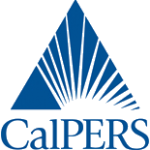Issue 3.5

The Ceres organization is sharing a great new report that you (in turn) can share inside your company – and upwards in the chain of command to the board room and C-Suite.
KEY OBSERVATION
Relatively few C-suite execs or board members embraced the concept of “corporate sustainability” in years past (the Ceres report authors have noted), but now a growing number of companies are leading their industry and sector peers in adopting strategies related to climate change…and confirming that the issues are material to their business interests and to society’s interests.
But, take note — there are numerous companies also sticking-to- business-as-usual with attention fixed on generating short-term results that prevent management and board from seeing the long- term impacts of their business on the bottom line.
And this approach clouds boards’ foresight of sustainability-related risks and inhibits boards’ ability to capitalize on sustainability-related opportunities.
And so, to encourage more boards of directors and corporate executives to look more closely at how and why sustainability is material to business, Ceres is sharing its “Lead From the Top: Building Sustainability Competence on Corporate Boards” document. It’s a great report with valuable information for directors and managers as a blueprint for how to integrate material environmental and social issues into corporate boards’ decision- making on strategy, risk, and compensation.
The report recommendations can be used by boards of directors just beginning to think about these issues, or for a veteran board already taking the lead on integrating environmental and social issues and weaving these into the fabric of the boardroom.
HIGHLIGHTS: KEY TOPIC AREAS IN THE REPORT
 Definitions of a “sustainability-competent board.
Definitions of a “sustainability-competent board.- Integrating sustainability into the director nominating process.
- Education of directors on material sustainability issues.
- Deepening engagement with stakeholders and experts on relevant “E+S” issues.
- The Business Case for board sustainability competence.
There’s content offered on each of the above with value-added takeaways for you (and for you to share internally).
FOR YOUR INFORMATION: RESOURCES INCLUDED
- Sustainability Risk and Business Impact
- What Research Says About Sustainability & Performance
- Ceres Work on Boards and Sustainability
- What Do We Mean When We Say “Sustainability”?
- Case Study: Prudential Financial
- Case Study: The Co-Operators (Canada financial services co-op)
- Sources for Diverse Directors
- Sample Questions For Directors to Ask on Climate Change
- And, a very helpful list of resources to access (61 in all).
One of the key quotes we found in the report was this from Helene Gayle (CEO at McKinsey Social Initiative and board member of Coca-Cola Company and Colgate-Palmolive):
“The biggest challenge is that we as directors don’t always know what we don’t know. When sustainability issues come up, directors believe in being environmental stewards but most people in the board room do not know the right steps to take.
“It is difficult for the board room to assess how they are doing, what are the trade-offs, and what lines of business are being impacted. There is a lot that is needed beyond the broad commitment to sustainability.”
(end quote)
That is where the savvy corporate sustainability officer (CSO) can leverage the information and advice shared in the report to inform and educate their board room with the specifics — the takeaways from Ceres’ work.
The Ceres report also highlights the importance of the director’s role is asking the right questions of management to ensure they receive the material information in question about environmental and social issues.
The report provides the details on how boards can integrate sustainability into their governance systems by raising their own competence on material sustainability issues to enable effective oversight, Ceres authors explain:
“This report builds on advice and findings shared on Ceres’ 2015 report — “View From the Top: How Corporate Boards Engage on Sustainability Performance.” That report suggested two approaches for incorporating sustainability considerations into two core board functions; (1) board governance, and (2) board actions. “
Contributors to the 2017 Ceres report included such experts in the board room environment as:
- Anne Stausboll, former Chief Operating Officer – CalPERS
- Mary Hartman Morris, current Investment Officer – CalSTARS
(teachers’ fund) - Michael Garland, Assistant Comptroller for Corporate Governance and Responsible Investment at the New York City Office of the Comptroller (an activist investor)
- Margaret Foran, Senior Vice President and Corporate Secretary, Prudential Financial, and board member, Occidental Petroleum
- Julie Gorte, PhD, Senior Vice President – Sustainable Investing/Portfolio Manager at Pax Ellevate Global Women’s Index Fund
- Stu Dalheim, Vice President -Shareholder Advocacy at Calvert Research and Management
- Carol Browner, former US EPA Administrator and Board Member, Bunge
- Rakhi Kumar, Head-ESG Investments and Asset Stewardship, State Street Global Advisors
- Tanuja Dehne, Board Member – Advanced Disposal Services, and Granite Point Mortgage Trust Corporation
The complete list is in the report. To download the report, go to:
https://www.ceres.org/resources/reports/lead-from-the-top
You know Ceres as a leading not-for-profit organization working with investors and companies to “build leadership and drive solutions throughout the economy.” Ceres tackles sustainability challenges and offers dialogue, connections and solutions on such issues as climate change, water scarcity and pollution, and human rights.
CERES’ POINT-OF-VIEW
 “Boards have a legal responsibility to act when environmental and social issues pose material risks on business models and financial performance,” says Veena Ramani, leading author of Lead from the Top and Program Director of the Capital Markets Systems Program at Ceres.
“Boards have a legal responsibility to act when environmental and social issues pose material risks on business models and financial performance,” says Veena Ramani, leading author of Lead from the Top and Program Director of the Capital Markets Systems Program at Ceres.
“Factoring in material risks in decision-
making is key for corporations to achieve strong long-term financial performance goals and increase their competitive advantage. We hope this new report serves as a practical guide on how to factor stronger environmental and social practices into board decisions on corporate strategy and risk.”
If you are interesting in learning more about the work of Governance & Accountability Institute and its portfolio of resources, tools and service offerings, please click here





